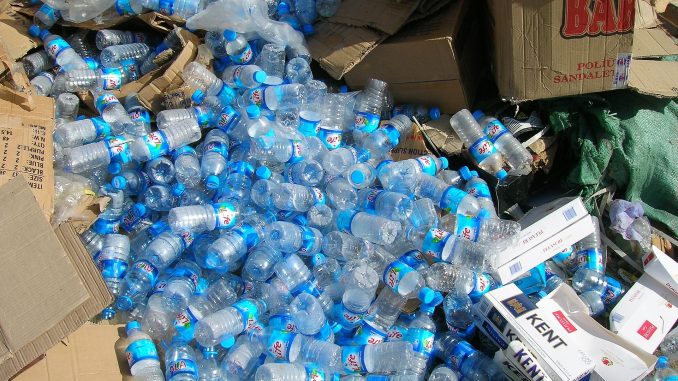
There have been growing concerns from consumers over the amount of plastic waste that companies, and especially supermarkets, are producing every year. A recent survey has shown the public are now showing even more support for moving away from using plastic, and around 80% said that the support the supermarket Iceland’s pledge to become plastic free.
In light of this, Asda is the latest supermarket to announce that it plans to remove plastic “wherever it can” and to make the plastic it does use “as recyclable as possible”. Among the proposed measures includes phasing out the use of plastic bags, as well as replacing plastic cups in its cafes with paper alternatives.
“Where we are able to go faster and harder to remove avoidable plastics from our products, we will,” said Asda chief executive Roger Burnley, stating that “we have an established track record in this area already. Our logic is to remove plastic wherever we can, and where it is required, to make it as recyclable as possible.” He added that “These aren’t merely long term ambitions – but real, tangible actions we are taking today to reduce our reliance on plastics,”
Asda has also pledged to reduce the amount of plastic used in its own brand products by at least 10% over the next year. This follows similar plans from rival supermarkets, Tesco and Sainsbury’s, who have both said that they intend to ban single use carrier bags in their stores. Asda have added that they are planning to replace polystyrene pizza bases with cardboard ones, and change its coloured drink bottles to clear ones, which would lead to an increase in the amount of plastic being recycled.
It’s not just the supermarkets under pressure to reduce their plastic waste. MP’s have called on the government to start taking action to reduce the use to plastic water bottles, and earlier this year saw the introduction of a ban on plastic microbeads in cosmetic manufacturing. Ryanair have also recently announced its plans to become plastic free by the year 2023.
According to Professor Richard Thompson, a marine biologist at the University of Plymouth “The public has become so repulsed by the problems of plastic that they are actively considering a world without plastic. That absolutely has to be seen by the industry as a wakeup call for greater producer responsibility.”
Asda’s recent move has been highly welcomed by environmental groups. Although, some have noted that the measures aren’t extreme enough and more needs to be done to reduce the amount of plastic being consumed. “It’s good to see Asda taking action to reduce its plastic footprint and other supermarkets should be doing this too, but a 10 per cent reduction in own brand products over one year doesn’t beat Iceland’s pledge,” said Tisha Brown, oceans campaigner at Greenpeace.
She added “If Asda applied the same tactic to reducing plastics as it does to competing on price, we’d be really impressed. It needs to go further, faster and be clearly focused on reduction, not recycling, to really impact the amount of plastic ending up in the ocean.”


Leave a Reply